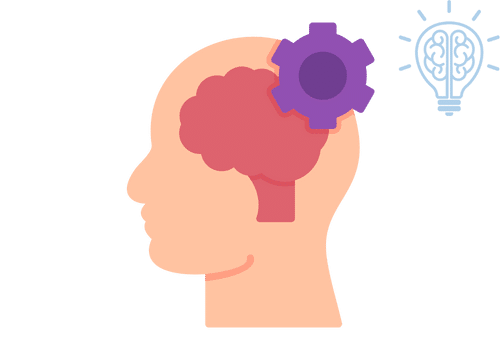What Is Impulse Control?
Impulse control is the ability to resist urges, delay gratification, and regulate behaviors in order to make thoughtful decisions. It is commonly referred to as a part of Inhibitory Controls. It is a part of the core executive function that helps individuals stay focused, manage emotions, and avoid distractions.
Poor control can lead to difficulties with attention, emotional regulation, and self-discipline. It is commonly linked to conditions such as ADHD, anxiety, and other executive function challenges.
Why Is Impulse Control Important?
Impulse control plays a crucial role in many aspects of life, including:
🧠 Decision-Making
Helps individuals pause and think before acting, leading to better choices and fewer regrets.
🎯 Focus and Productivity
Prevents distractions and allows for sustained attention on important tasks.
😤 Emotional Regulation
Reduces impulsive emotional reactions, helping with conflict resolution and social interactions.
💰 Financial Management
Prevents impulsive spending and encourages thoughtful financial decisions.
⚖️ Long-Term Goal Achievement
Supports delayed gratification, which is essential for academic, career, and personal success.
Examples of Impulse Control Challenges
📱 Digital Distractions
Grabbing your phone to scroll social media instead of focusing on work.
🍔 Unhealthy Eating Habits
Choosing fast food instead of preparing a healthier meal.
🗣️ Interrupting Conversations
Speaking before thinking, cutting off others mid-sentence.
🛍️ Impulse Spending
Making unnecessary purchases without considering financial consequences.
⏳ Procrastination
Choosing immediate pleasure (e.g., watching TV) over long-term priorities (e.g., completing work).
How Impulse Control Relates to Executive Function
It is a key component of executive function, influencing:
- Self-Regulation: The ability to manage emotions, thoughts, and behaviors.
- Task Initiation: Overcoming the urge to delay important tasks.
- Working Memory: Keeping long-term goals in mind rather than acting on short-term impulses.
- Attention Management: Filtering out distractions to stay on task.
Strategies to Improve Impulse Control
While improving in this area can be challenging, it is a skill that can be strengthened with practice.
✅ 1. Use the “10-Minute Rule”
Before acting on an impulse (e.g., checking your phone, making a purchase), wait 10 minutes. Often, the urge will pass.
✅ 2. Create Physical Barriers
Make it harder to act on impulses—keep your phone in another room, use website blockers, or avoid keeping junk food at home.
✅ 3. Develop If-Then Plans
Prepare for impulsive moments with alternative responses. Example: “If I feel the urge to interrupt, then I will take a deep breath and count to three.”
✅ 4. Use Mindfulness Techniques
Practicing mindfulness helps build awareness of impulses and encourages thoughtful decision-making.
✅ 5. Strengthen Delayed Gratification
Use small rewards for delaying an impulse. Example: “If I finish this task, I can watch an episode of my favorite show.”
✅ 6. Track Impulsive Behaviors
Keep a journal to identify patterns in impulsive behaviors and find ways to adjust responses over time.
How Executive Function Coaching Can Help with Impulse Control
For individuals struggling with impulse control, executive function coaching provides personalized strategies to build self-regulation skills. Coaching can help with:
- Developing self-monitoring techniques.
- Creating personalized impulse control strategies.
- Building accountability systems to reinforce positive habits.
- Strengthening focus and attention management.
With the right strategies, it can be improved, leading to better decision-making, stronger focus, and greater success in daily life.
📞 Want to strengthen your impulse control? Contact us for executive function coaching today!




